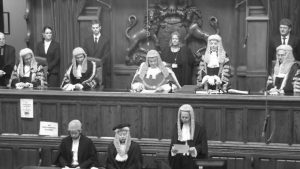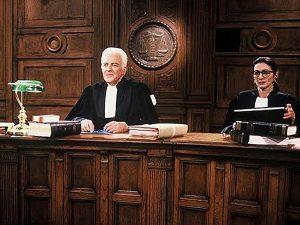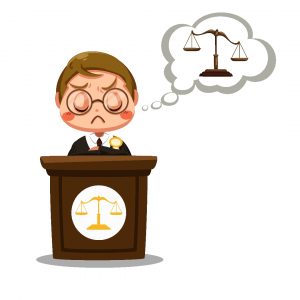Strong v Bird [1874] LR 18 Eq 315: Strong V Bird is an 1874 case under exceptions to the unenforceability of an incompletely constituted trust. It is the law that a trust which has been created in an appropriate manner must not only pass the validity test but also the enforceability test. The case of Strong V Bird established the principle that there are certain circumstances where a trust though not completely constituted can be enforced.

This came to be known as the rule in Strong V Bird. The creation of trust deals with the disposition of the property of the settlor or the testator as the case may be. In the disposition of property, the law requires that certain rules must be complied with. In the case of a trust creation, the trust must be created in an appropriate manner. This implies that the provisions of the law must be complied with as regards to the declaration. For instance, the law could permit that the declaration should be orally made or be in writing, and this depends on the nature of the property; whether a realty or personalty, and the nature of interest which the testator/settlor has; or whether legal or equitable interest. Having complied with the prescribed requirement as to the appropriate creation of the trust, the trust so created is subjected to validity test.
Recommended: Differences Between British and American English
This requires that the words used in creating the trust must be certain (certainty of words), that the subject matter of the trust must be certainty (certainty of subject matter), and that the objects, that it, the beneficiaries of the trust must be certain (certainty of object). Once the validity tests have been met, the trust is further subjected to enforceability test. Here, all that is required to be established is that the trust property vested on the trustee in the manner property passes in law. Where the property is properly vested, it is said to be completely constituted and as such, enforceable.
For instance, where the property is a car, it is completely constituted where change of ownership has been effected. Where it is a bill of exchange, it is completely constituted by endorsement, where the trust property is cash; it is completely constituted by delivery, and so on.

The rule in Strong V Bird created an exception to the requirement of complete constitution for the enforceability of trust. The rule in Strong V Bird is that where the settlor makes an immediate gift to the promisee but the property did not vest on the trustee in the manner property passes in law, and the settlor does nothing inconsistent with the promise, if the donor subsequently appoints the donee as an executor in his will, the appointment renders the otherwise imperfect gift perfect.
The scenario goes like this: A makes a promise of Toyota Camry to B without the property vesting properly as it should in law (that is, by effecting change of ownership in the case of a motor vehicle), and A does nothing inconsistent with the promise during his life time, if B is subsequently appointed as executor in the donor’s will, the gift becomes perfected as though the requirement of change of ownership was initially fulfilled.
Also see: Differences Between Legal Mortgage and Equitable Mortgage
Facts of Strong v Bird 1874
Bird was living together with his stepmother but on a rent payment agreement. The stepmother was paying rent to Bird. One time, upon Bird’s request, his stepmother loaned him 1, 100 pounds. The parties afterwards agreed that the 1, 100 pounds loan was to be repaid by specific reduction of the rent at the rate of 100 pounds per quarter, to be paid by Bird’s stepmother to him until the debt is cleared in full.

This latter agreement was only complied with twice. Thus, stepmother paid the reduced rent only twice. Afterwards, she continued paying her rent in full as she was initially doing until she died. Before her demise, the stepmother appointed Bird as the executor of her estate. The stepmother’s next of kin who became aware of the 1, 100 pounds debt owned by Bird to the stepmother, sought to recover the debt.
Also see: How to answer law problem questions
Issues determined
The issue for determination was whether the next of kin is entitled to recover the loan. In other words, whether Bird was liable to pay the loan, or whether the conduct of the stepmother by stopping to pay rent at a reduced price as was agreed for the purpose of discharging the loan discharges the agreement to pay back the loan.
Judgement/Decision of the court in Strong v Bird
The court held that since the stepmother appointed Bird her executor, coupled with the fact that she stopped paying rent to Bird at the reduced price for the purpose of discharging the loan as was agreed, it amounts to a gift to Bird. The gist although imperfect at law, became perfect for the fact that Bird’s stepmother appointed him as her executor. Noteworthy also is that the stepmother after paying twice at the agreed reduced rate, continued to pay the full rent until her demise. She had done nothing inconsistent with the gift during her lifetime. Moreso, the court noted that Bird being the executor is saddled with the responsibility of recovering debts to the estate of the testator, and he is not expected to sue himself (the executor) and recover a purported debt of a grant made to him by the testator in her lifetime. And when someone is appointed an executor, he exercises the legal rights in respect of the testator’s properties.
![Strong v Bird [1874] LR 18 Eq 315](https://bscholarly.com/wp-content/uploads/2022/05/Types-Of-Judgment-in-Law-300x176.jpg)
Conclusion
The rule in Strong V Bird is a fine one which seems to be hinged on the principle that an executor, by law, exercises legal rights over the estate of the testator. Such right is inherent and becomes operative by the virtue of the appointment under the will by the testator himself. The rule is a justifiable one, for it is coupled with certain conditions which must be present in order for the rule to apply. It seems that if the executor is appointed by a person other than the testator and not under the will of the testator, there is a justifiable reason why the rule should not apply in its full vigour.

Edeh Samuel Chukwuemeka, ACMC, is a lawyer and a certified mediator/conciliator in Nigeria. He is also a developer with knowledge in various programming languages. Samuel is determined to leverage his skills in technology, SEO, and legal practice to revolutionize the legal profession worldwide by creating web and mobile applications that simplify legal research. Sam is also passionate about educating and providing valuable information to people.